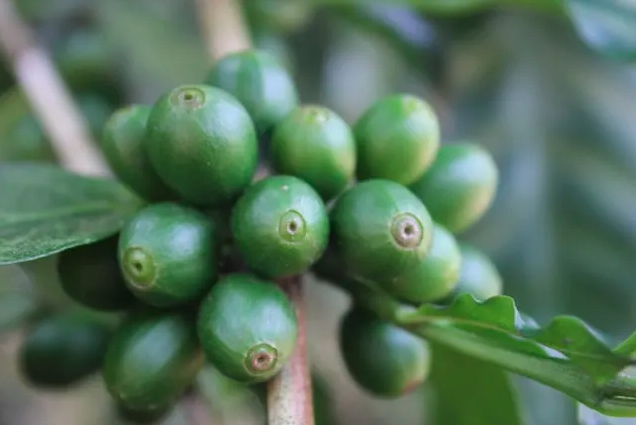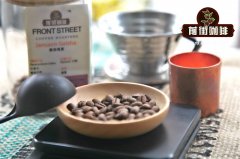Colombian coffee beans plan to break away from the international futures price system because the pricing of commercial coffee is unreasonable

Professional coffee knowledge exchange more coffee bean information please follow the coffee workshop (Wechat official account cafe_style)
Colombian coffee is famous in the world, but that doesn't mean these South American countries will be paid relatively well. In reality, the price of coffee is regulated by the New York Stock Exchange. In response, Colombian producers think it is bringing down the coffee industry as a whole.
"We want to sell coffee beans at a reasonable and fair price, which must include production costs and reasonable profits," Jose Sierra, manager of the Colombian Coffee producers Association (FNC), told Agence France-Presse.
Coffee producers are restricted from setting their own prices because they are linked to international futures prices. Sierra said that the reason to stop using international futures prices as a reference is to be out of the control of traders on the exchange, causing the price of coffee to plummet. Stock market speculators who buy coffee securities often manipulate buying and selling, causing the trading price of raw coffee beans to plummet.
Colombia is the third largest coffee producer in the world, after Brazil and Vietnam, and is one of the coffee producers famous for its high-quality soft beans. The international reference price of coffee fell from a high of $1.50 per pound in 2016 to less than $1 in February this year. Although Colombian coffee has a 20-cent premium because of its high quality, this is not enough for coffee producers.
Sierra, who has been a manager at FNC for 25 years, points out that "125kg of raw coffee beans cost as little as 640000 pesos, but the cost of production is as high as 790000 pesos", with a loss of $53.60 per transaction.
The collapse in prices is the result of an oversupply of coffee. According to the International Coffee Organization (OIC), production (in 60 kg bags) will reach 167 million bags in 2018 / 19, compared with global consumption of 165 million bags.
Colombian coffee is currently priced at $1.20 a pound, down from $1.40 in 1983, and Fernando Morales-De La Cruz from Cafe for Change says it is working to provide more profits for coffee production. A pound of beans can provide 55 cups of coffee, he said, but "in different countries, consumers pay $1 for each cup of coffee, while producers sacrifice a lot of land value for this cup of coffee."
The coffee market consumes about $200 billion a year, but producers get only 10 per cent of that, according to FNC. To get rid of the stock exchange, Colombia needs to find allies among other commercial coffee producers in Central America and Africa and establish its own price system determined by quality.
Coffee prices in Colombia have been based on the New York Stock Exchange for decades. The mutation away from international pricing must first be recognized by coffee growers in the country.
If consensus can be reached, it will need to be discussed at the OIC meeting in Kenya at the end of March and at the producers' meeting in Brazil in July.
In Colombia, 540000 families work in the coffee industry. Coffee is the country's largest export, ahead of oil and mining.
Currently, the Colombian government has promulgated a number of positive measures to help coffee farmers, including debt modification, potential refinancing, support for the purchase of fertilizers and the renovation of coffee plantations, and the restart of subsidy funds.
But coffee farmers insist that this is not enough. "Coffee growers should be paid more than three times the current price," Morales-De La Cruz said. And he thinks producers should unite to form organizations like the Organization of the Petroleum Exporting countries (OPEC) so that Colombia can profit from exporting coffee.
For Jose Sierra, Colombian commercial coffee is the best in the world. He hopes that those who want to drink coffee will realize the value of that cup of coffee and let the coffee producers get what they deserve.
The picture is from: the Internet
END
Important Notice :
前街咖啡 FrontStreet Coffee has moved to new addredd:
FrontStreet Coffee Address: 315,Donghua East Road,GuangZhou
Tel:020 38364473
- Prev

What is the authentic flavor of Blue Mountain Coffee? there are several categories of Jamaican coffee where does Blue Mountain Coffee belong?
Professional coffee knowledge exchange more coffee bean information please follow the coffee workshop (Wechat official account cafe_style) Blue Mountain coffee why the secret: their coffee tree on the rugged hillside, the picking process is very difficult, non-local skilled female workers simply can not do it. It is very important to choose the right ripe coffee beans when picking, immature or ripe
- Next

El Santa Elena Coffee Farm introduces the characteristics of El Salvador Sun Pacamara Flavor
Professional coffee knowledge exchange more coffee bean information please pay attention to the coffee workshop (Wechat official account cafe_style) El Salvador Finka San Elena El Salvador is a small country, but it has dozens of volcanoes, it is the country with the highest volcanic density in the world, so it is called the country of volcanoes. The average elevation of the whole country is relatively high, and this geographical environment is very conducive to the growth of coffee.
Related
- Detailed explanation of Jadeite planting Land in Panamanian Jadeite Manor introduction to the grading system of Jadeite competitive bidding, Red bid, Green bid and Rose Summer
- Story of Coffee planting in Brenka region of Costa Rica Stonehenge Manor anaerobic heavy honey treatment of flavor mouth
- What's on the barrel of Blue Mountain Coffee beans?
- Can American coffee also pull flowers? How to use hot American style to pull out a good-looking pattern?
- Can you make a cold extract with coffee beans? What is the right proportion for cold-extracted coffee formula?
- Indonesian PWN Gold Mandrine Coffee Origin Features Flavor How to Chong? Mandolin coffee is American.
- A brief introduction to the flavor characteristics of Brazilian yellow bourbon coffee beans
- What is the effect of different water quality on the flavor of cold-extracted coffee? What kind of water is best for brewing coffee?
- Why do you think of Rose Summer whenever you mention Panamanian coffee?
- Introduction to the characteristics of authentic blue mountain coffee bean producing areas? What is the CIB Coffee Authority in Jamaica?

